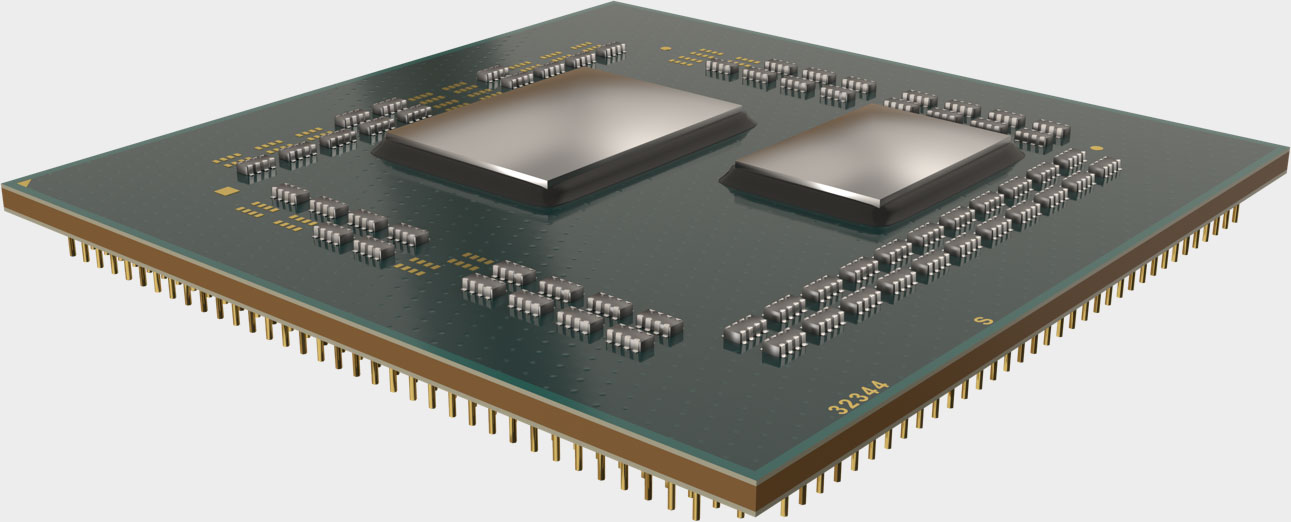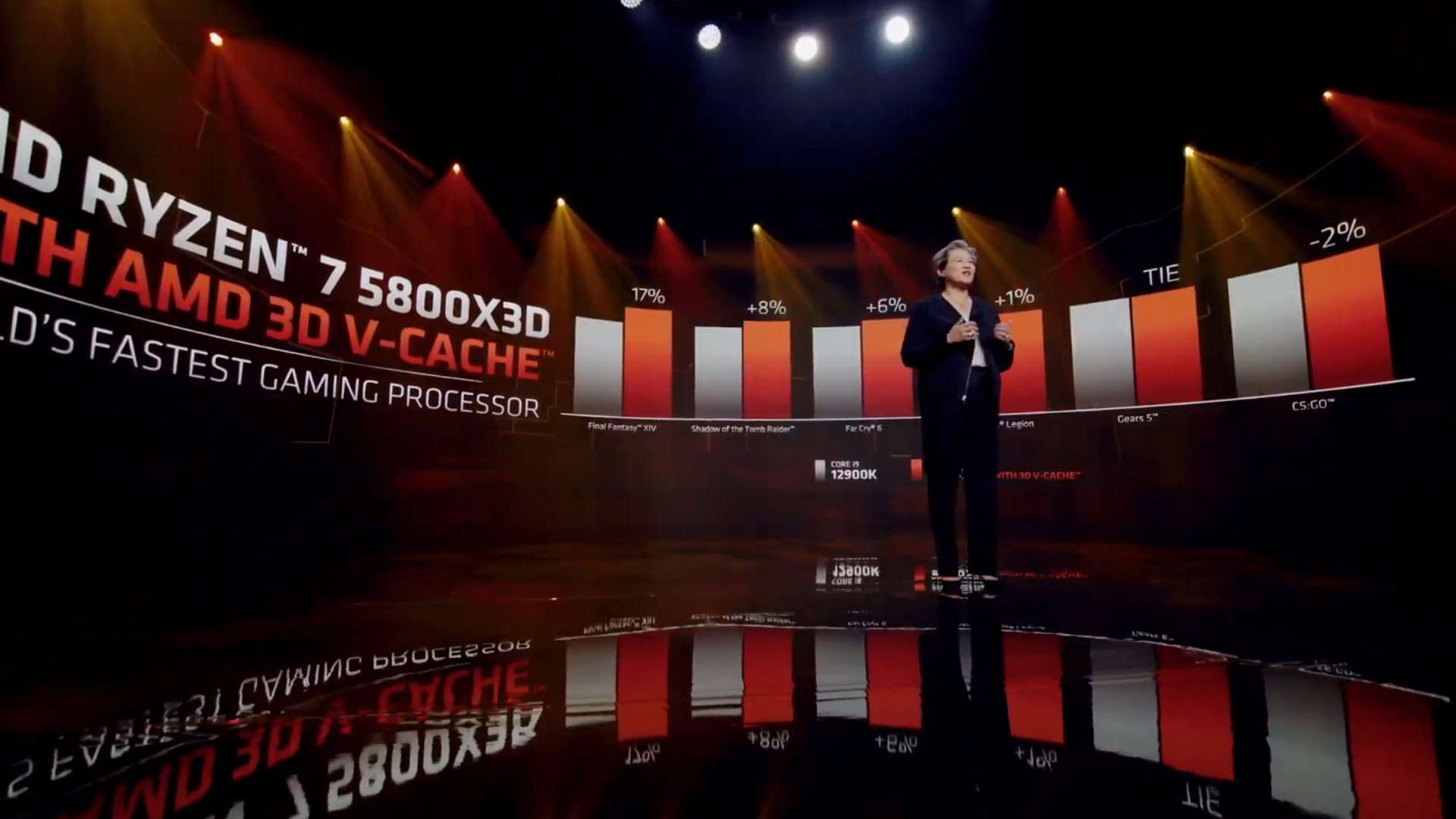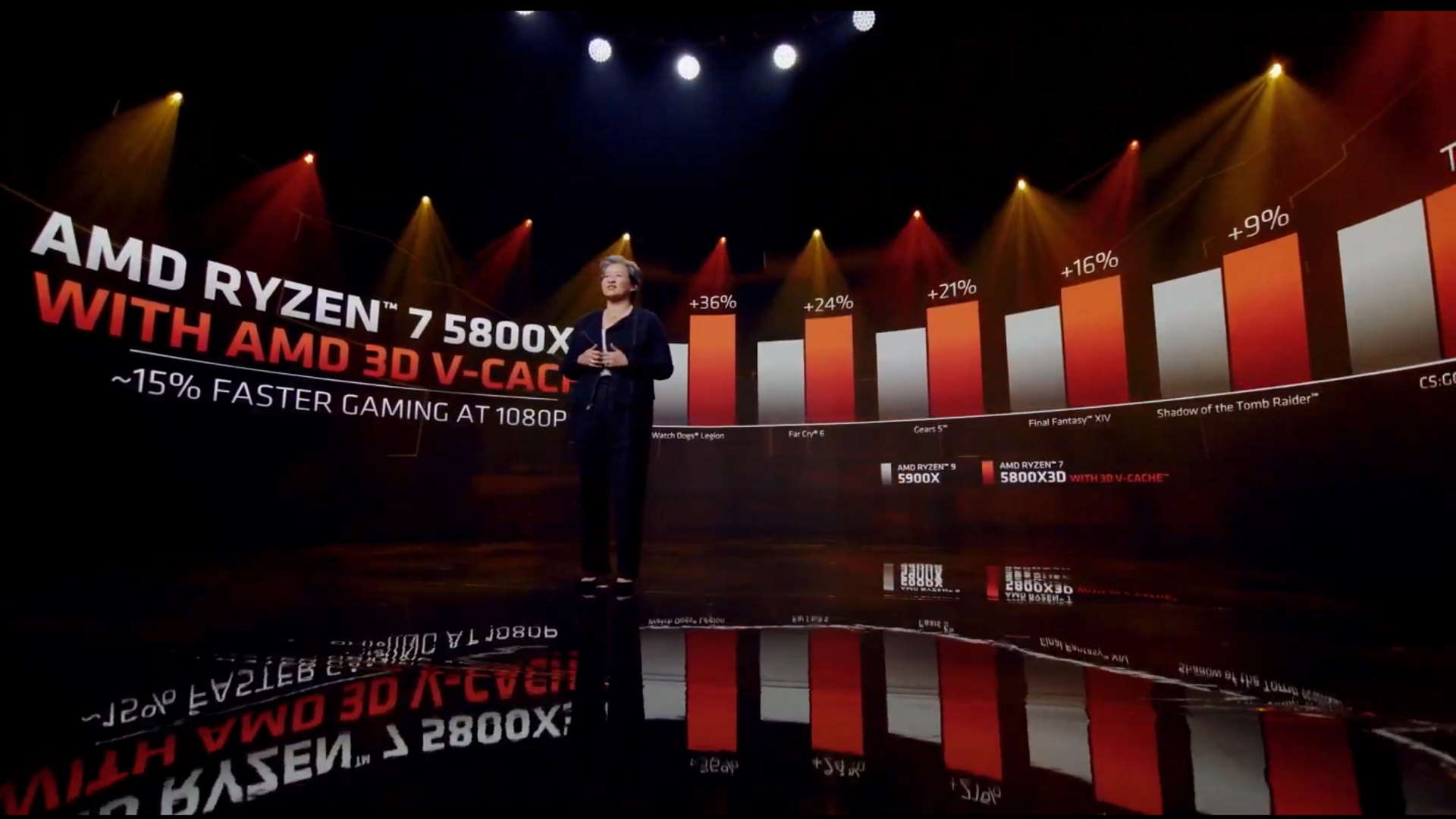AMD's 3D V-cache coming to the Ryzen 7 5800X3D this Spring, beating Intel's 12900K in gaming
The classic Ryzen Zen 3 chip will supposedly offer "extreme gaming performance" thanks to its stacked cache.

At AMD's CES 2022 press conference, Dr. Lisa Su has confirmed that it will be bringing its clever 3D V-cache tech to a single Zen 3 CPU in the next couple of months. The new Ryzen 7 5800X3D will be the first processor to use the stacked memory technology within its package.
It's a similar deal to the idea behind the Infinity Cache of AMD's Radeon RX 6000-series GPUs, where it lumped in a huge amount of cache memory with its GPU. That means the chip doesn't have to go outside to the VRAM as often, and the same will be true with a beefier L3 cache on a CPU, too.
We've already heard that AMD is expecting a 15% performance boost from this extra level of on-chip memory, and that is actually translating into about 15% higher frame rates. That puts it ahead of the Ryzen 9 5900X in terms of gaming performance, but significantly puts it ahead of the Intel Core i9 12900K in terms of raw frame rates according to AMD's own benchmarks.


According to Lisa Su, with the Ryzen 7 5800X3D that "once again makes Ryzen the fastest gaming CPU in the world."
With the Ryzen 7 5800X3D set to launch in Spring 2022, that likely means sometime before the end of April. It's interesting that AMD seems to only be pushing forward with a single 3D V-cache chip, though it's possible it's just a practice run ahead of a full suite of Zen 4 CPUs featuring the innovative cache solution once they launch later this year.
Keep up to date with the most important stories and the best deals, as picked by the PC Gamer team.

Dave has been gaming since the days of Zaxxon and Lady Bug on the Colecovision, and code books for the Commodore Vic 20 (Death Race 2000!). He built his first gaming PC at the tender age of 16, and finally finished bug-fixing the Cyrix-based system around a year later. When he dropped it out of the window. He first started writing for Official PlayStation Magazine and Xbox World many decades ago, then moved onto PC Format full-time, then PC Gamer, TechRadar, and T3 among others. Now he's back, writing about the nightmarish graphics card market, CPUs with more cores than sense, gaming laptops hotter than the sun, and SSDs more capacious than a Cybertruck.

